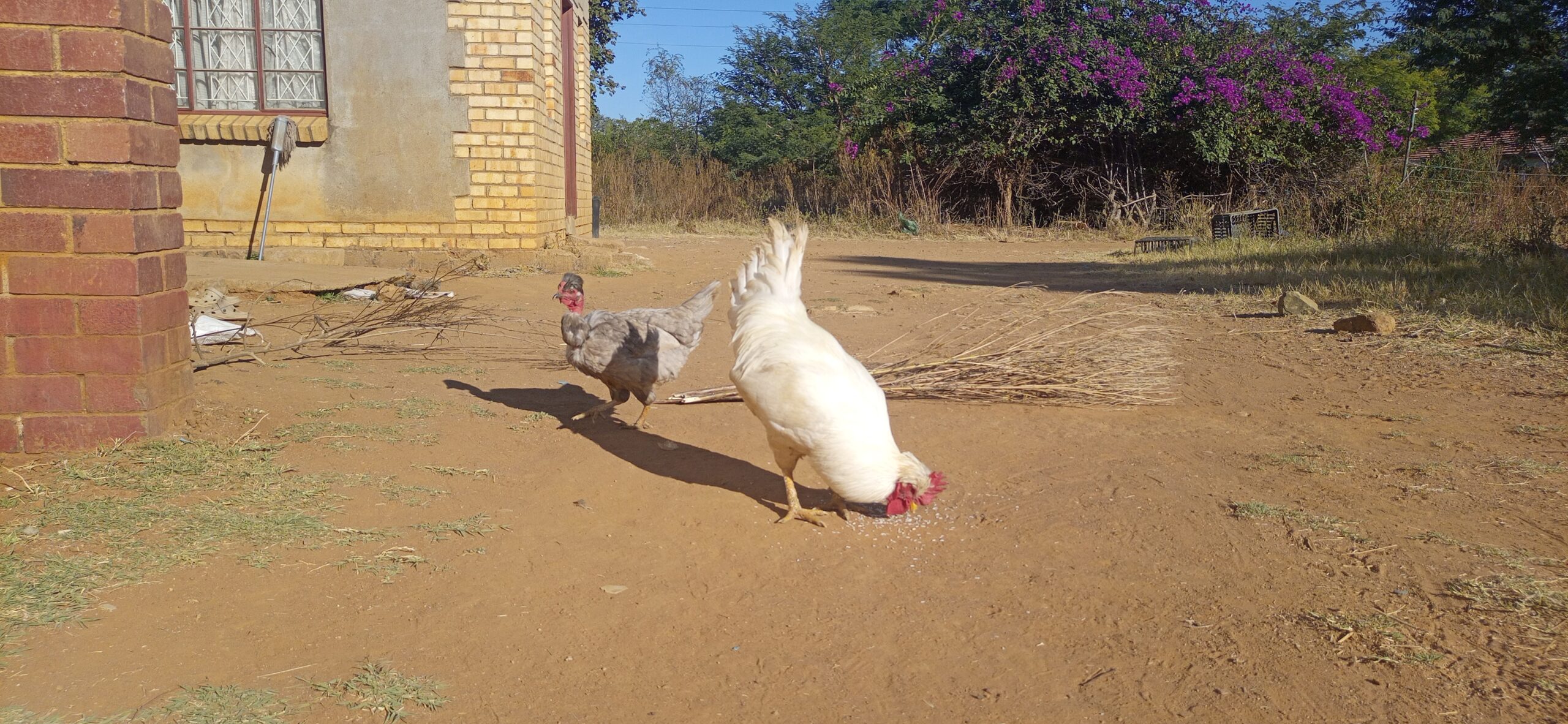In a home-made coop pieced together from corrugated iron, asbestos, wire mesh and bricks in one of Bulawayo’s low-density suburbs, known for once thriving white-owned farming plots, Gilbert Mashava breeds up to three hundred broiler chickens.
The business has had its own ups and downs, and Mashava had thought he had mastered poultry farming at a time when raising chickens is seen as a sure bet to generate income in a country where millions are without formal jobs.
“It has been a fine run until recently,” he said. He recently lost more than a hundred of his birds, a few weeks shy of slaughter.

Gilbert Mashava’s chicken coop.
“I will take a break and rethink this whole business,” he said.
“There are people next door who keep disease-resistant free range chickens and I am convinced they carry diseases which led to my losses,” Gilbert confesses. He says he has made all efforts to get his poultry vaccinated by buying recommended medicines, but it has been difficult – if not outright impossible – to stop the neighbour’s chickens from stray into his premises, a dilemma faced by many poultry breeders. Researchers say some chicken breeds have developed more disease resistance than others, yet this knowledge has largely been ignored by – or is yet to reach – local poultry breeders. An increasing number of city-based poultry breeders seeking to create thriving businesses are lamenting the loss of their birds to diseases.
Co-breeding different types of poultry has proven to be bad for business, and both ignorance and circumstance have left breeders counting their loses. Like Gilbert, they too attribute this to diseases spread by the disease resistant poultry breeds, the type that is allowed to roam freely. The road runners, as they are called here, ingest anything and do not rely on chicken feed like their broiler counterparts.
“It is an increasingly frustrating business,” said Agnes Chimombe, who also breeds poultry not far from Gilbert Mashava’s project. “It is one thing losing your chickens because of your own negligence. It is a different story when disease-carrying chicken breeds are left to roam freely,” Agnes added. Zimbabwe has routinely faced an outbreak of avian flu and also Newcastle disease with poultry breeders having to juggle sourcing feed for their poultry and finding vaccines for diseases that affect their chickens.
“It is a big investment when you also have to buy medicine for the birds and still lose them just when you are planning to slaughter them,” Gilbert said.
While breeders get advice and training from suppliers of day-old chicks, creating a balance between breeding and earning an income from the project has proven to be a tough proposition, says Bernard Siziba, a sales representative and trainer with one of the country’s major chicken suppliers.
“It has been especially tough for poultry breeders because everyone seems to be choosing it as an easy source of income yet we get the same problems of huge losses all the time,” Bernard adds.

“People lose their chickens due to a variety of reasons that include anything from poor ventilation to diseases that require vaccinating your birds. But not all breeders are prepared or have the resources to meet those challenges,” he said.
For Gilbert, his attempts to create a source of income have literally been upended by what he says is beyond his control. “I don’t know if I am ready to continue with this project. I will take a break for now and map the way forward,” he concludes.
References:
https://www.herald.co.zw/zim-onhigh-alert-for-avian-flu/
https://www.newsday.co.zw/news/article/51844/newcastle-disease-outbreak-hits-bulilima-district










Loved reading your article. it was really informational for me. wish to see more in the coming days.